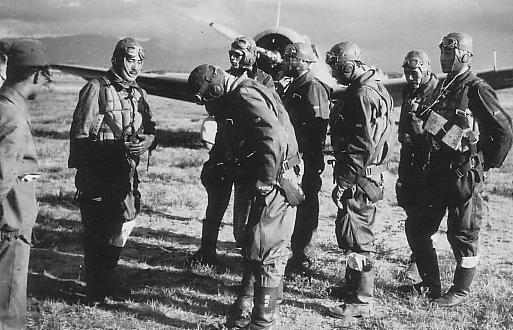
Manchukuo pilots
China’s leader Chiang Kai-shek tried something new in late 1936 when his armies were faced with the attacks of Chinese puppet troops fighting for the Japanese. He lured them with cash in a bid to make them defect over to his side.
The offer came at a time when forces loyal to the Japan-backed Manchukuo regime in northeast China were pushing into Suiyuan province, threatening to undermine Chiang’s control of the entire north of the country.
According to a “price list” published by Chiang’s government at the time, a Manchukuo pilot who defected with his plane was offered 20,000 yuan. This was the equivalent of roughly 6,000 US dollars back in 1936 – in other words, a sizable amount at the time.
“Being Chinese, like ourselves, are you willing to expose the graves of your ancestors to devastation by other people and to let your sons and grandsons be their slaves?” Chiang’s regime said in a statement quoted by The New York Times in November of that year.
“If you persist in your iniquities you will be abandoned by 400,000,000 compatriots. Wake up, compatriots! Return immediately to the Chinese Army!”
Chiang’s list offers an interesting insight into the relative value of various forms of personnel and equipment in the Chinese Army.
An Army or division commander was by far the most valuable prize, and was promised 50,000 yuan for shifting to Chiang’s side. A brigadier could expect 30,000 yuan, a colonel 10,000 and a major 5,000.
On the equipment side, tanks were, interestingly enough, not valued highly at a mere 3,000 yuan. This was less than a third of the 10,000 yuan for an anti-aircraft gun, and only three times more than the 1,000 yuan offered for a machinegun.
Ordinary soldiers could expect almost nothing. Their reward for defecting was 10 yuan, or roughly 3 US dollars – or only half of what a Manchukuo revolver would get you.